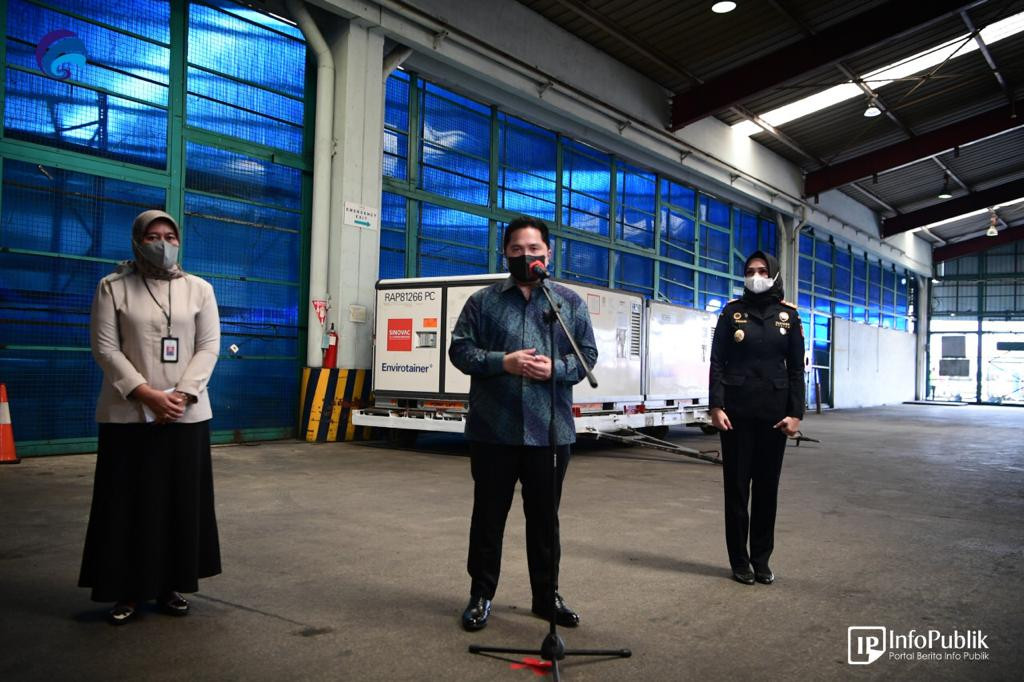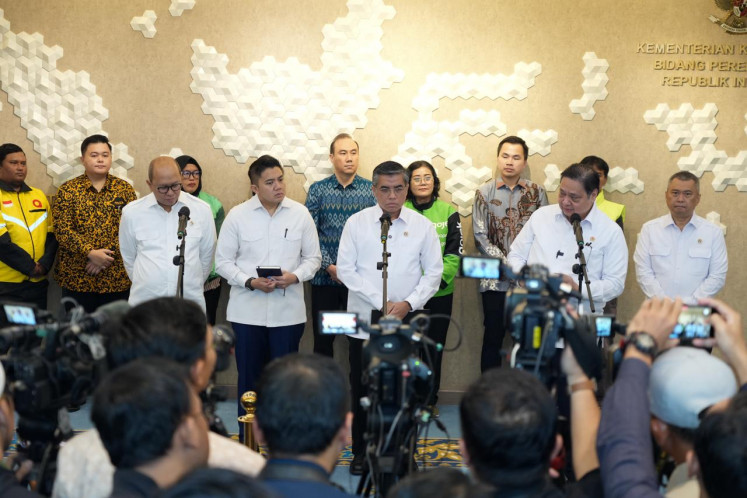Popular Reads
Top Results
Can't find what you're looking for?
View all search resultsPopular Reads
Top Results
Can't find what you're looking for?
View all search results2022 Outlook: Aiming for resilient, sustainable recovery
Signs of economic recovery continued to emerge toward the end of 2021. COVID-19 cases have been relatively contained compared to July’s peak when the Delta wave hit Indonesia.
Change text size
Gift Premium Articles
to Anyone
S
igns of economic recovery continued to emerge toward the end of 2021. COVID-19 was relatively well contained compared to July’s peak when the Delta wave hit Indonesia. The recent gradual relaxation in social restrictions led to a steady rebound in economic activity and economic performance.
Indonesia’s consumer confidence index improved to 118.5 in November, the highest reading since January 2020. This is in line with the Mandiri Spending Index, which climbed further to 127.8 by mid-December from 120.5 at the end of November, suggesting a convincing recovery in private consumption.
The government also recently announced that tax revenue in 2021 exceeded the initial target, reaching 103.9 percent, which rarely happens. This confirms the significant rebound in economic activity as companies responded to recovering demand.
The Purchasing Managers’ Index (PMI), which measures manufacturing activity, has been consistently above 50 since September 2021, which indicates expansion. Economic recovery is also supported by a windfall from commodity exports as global commodity prices sharply increased due to the pandemic-related supply chain disruptions. Larger commodity income helped support export performance and also increase the government non-tax revenue.
Recovery can accelerate further in 2022, as private consumption should rebound along with improving consumers' and investors' confidence, provided that COVID-19 cases remain under control. Recovering private consumption and domestic demand will be met with increasing production and investment activity.
Economic growth is expected to rebound to its pre-pandemic growth level at 5 percent in 2022.
Yet, the recovery is not without risks. One of the key risks is the phenomenon of rising global inflation resulting from supply chain disruption and rising commodity prices. Higher inflation may lead to a faster global normalization policy, especially monetary policy.
The United States Federal Reserve recently accelerated its quantitative easing tapering, which may soon be followed by raising the benchmark interest rates (Fed Funds Rate). Some other countries have already begun the cycle of raising interest rates to contain inflationary pressure.
Indonesia is not an exception, sooner or later, these global dynamics will affect the economic recovery.
Therefore, it is important for the economy to be in a stronger position to be able to withstand any potential volatility risk arising from these global policy shifts. Fiscal, monetary and financial system authorities need to maintain synergy, support growth and stability, while at the same time be flexible in facing the global dynamics.
The other key risk to economic recovery is the global development of the COVID-19 pandemic. The recent increase in the new Omicron variant should be managed carefully as other countries start to see rapid increases in Omicron cases.
The government must consistently implement the vaccination plans, health protocols, testing and tracing especially for foreign travelers. Keeping COVID-19 at bay is a necessary condition for a resilient economic recovery.
Moreover, a resilient economic recovery needs to be supported by a strong and resilient health sector. The COVID-19 pandemic has increased the importance of pursuing reforms in the health sector.
The government has laid out reform plans, which cover improving the resiliency of health facilities, access to financing, the skills of medical staff and health technology reforms. Health services and facilities need to be strengthened as there is still uncertainty over the COVID-19 pandemic.
For example, with its large population, it is important for Indonesia to build mass production facilities for medicines, vaccines or medical devices, which will reduce reliance on imported products.
One of the positive outcomes of the pandemic is that it brought a renewed motivation to improve health, environment and other social aspects of life.
The world has become increasingly aware of the importance of addressing climate change and other broader sustainability agendas as we aim for a more sustainable and quality-based economic growth.
The sustainability agenda has become increasingly popular. A successful transition to a sustainable future requires international collaboration and transformations across multiple sectors. These issues will be some of the key highlights at the Group of 20 meeting that will be held in Indonesia this year.
The government has also recently started to focus on and create strategies toward achieving a more sustainable economic growth.
For example, in the new tax law, the government laid out foundations for carbon tax and carbon trading mechanisms as one of the efforts to fulfill the commitment in the climate change agenda. A road map for the transition to renewable energy has also been set.
Going forward, both the public and private sectors need to be ready in preparing the foundation for the implementation of environmental, social and governance (ESG) criteria, energy transition and sustainable financing in order to push for a more sustainable and resilient economic recovery.
The writer is an economist at Bank Mandiri










